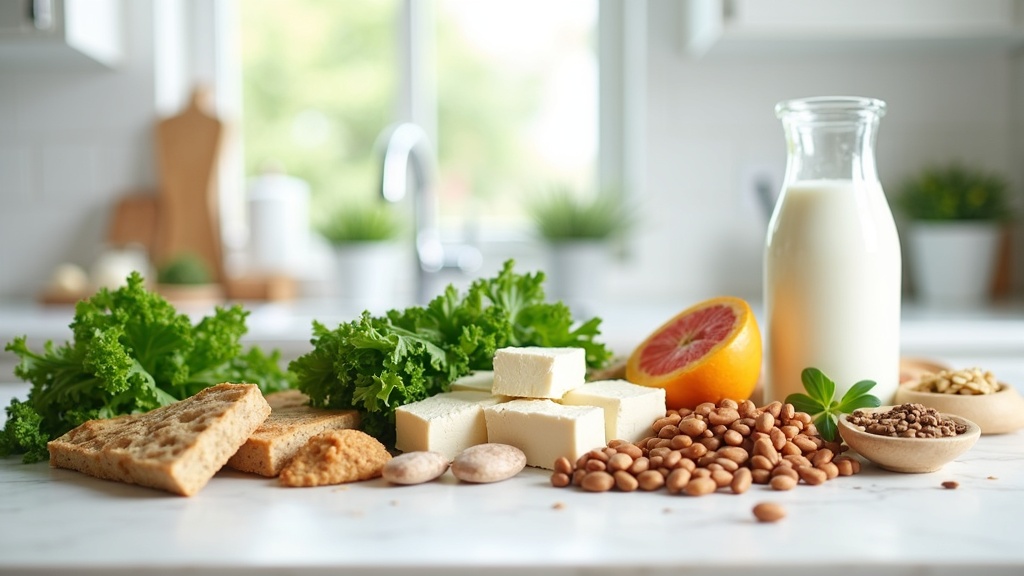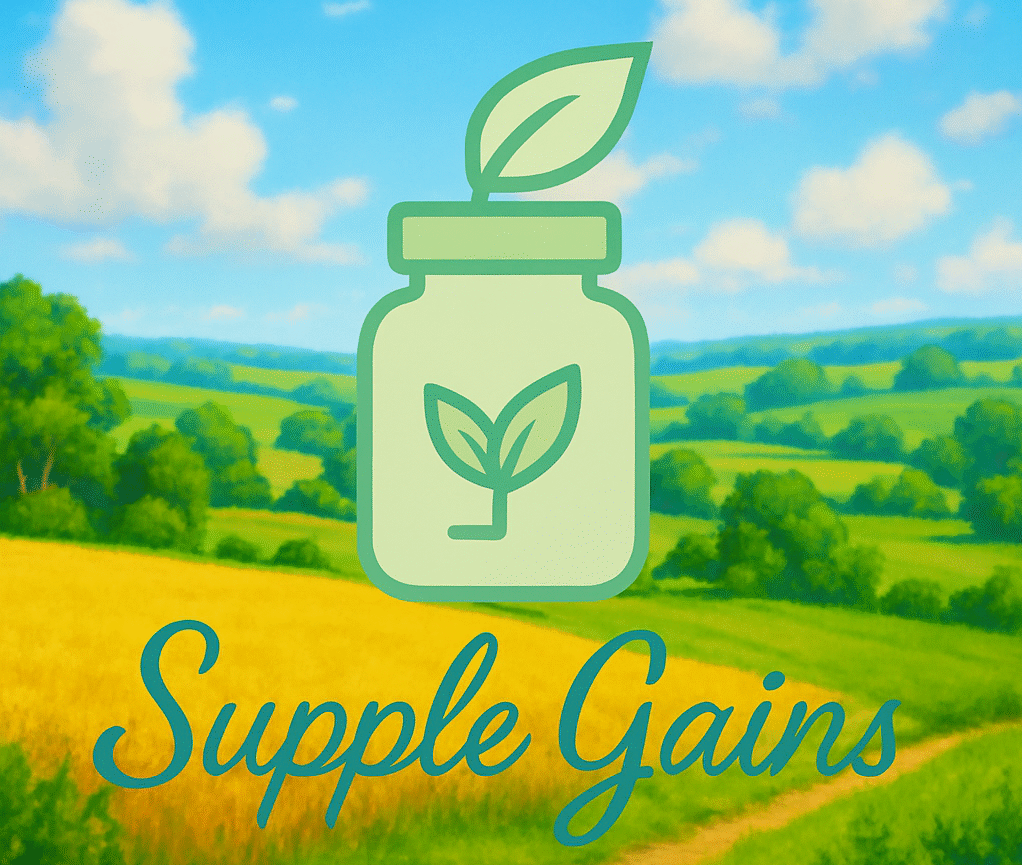More people are turning to plantbased diets these days, and bone health ends up being a pretty hot topic in that conversation.
There’s a lot of talk out there about whether you can really get strong, healthy bones on a plantbased diet.
I circled up with registered dietitians to gather their smartest tips, most practical strategies, and realworld insights.
Here’s a roundup that makes keeping bones healthy with plantbased foods totally doable and less confusing.

Why Bone Health Matters on a PlantBased Diet
Plantbased eating is stacked with benefits; think more fiber, less saturated fat, and tons of vitamins.
But calcium and vitamin D, which are pretty important for bones, are usually spotlighted as nutrients of concern for vegans and vegetarians.
If you grew up learning that only milk builds bones, you’re not alone. The good news is you can get what you need from plantbased foods if you’re smart about it.
Dietitians tell me one big reason people ask about bones when they switch to plants is that bones aren’t something most of us feel or see changing on a daily basis.
MBone strength comes down to daily choices over a lifetime, and gaps add up quietly. Making small, smart swaps can have a real impact over time.
Key Nutrients for PlantBased Bone Health
There’s more to keeping bones solid than just calcium and vitamin D.
I gathered expert advice on which nutrients to pay attention to on a plantbased diet, plus simple ways to work them in:
- Calcium: Important for building and maintaining bone structure. Dietitians suggest loading up on calciumrich foods that fit a plantbased lifestyle, like tofu set with calcium, fortified nondairy milks, leafy greens (especially collard greens, bok choy, and kale), and almonds.
- Vitamin D: This vitamin helps you absorb the calcium you eat. Since it’s tough to get enough through food alone, dietitians often recommend a vitamin D supplement, especially for those in less sunny climates or with darker skin.
- Vitamin K: Key for proteins that help build bone. Leafy green vegetables like kale, spinach, and broccoli are solid sources.
- Magnesium: Helps activate vitamin D in the body. Beans, nuts, seeds, and whole grains are good picks here.
- Phosphorus: Found in whole grains, beans, and nuts. This mineral works with calcium to keep bones strong.
- Protein: Plantbased diets are naturally high in protein sources like beans, lentils, tofu, tempeh, and seeds, which all support bone health.
Adding fermented foods like tempeh and miso into your meals can also support mineral absorption and bring in essential nutrients.
Fermented products may aid digestive health, which is linked to absorption of minerals important for bone strength.
Additionally, including a wider mix of seeds such as pumpkin and sunflower can help you get necessary magnesium, zinc, and phosphorus.
Top Dietitian Tips for Supporting Bones without Dairy
Registered dietitians shared some daytoday advice that’s both practical and easy to remember.
Here are their top tips for getting a bonehealth boost from plants:
- Mix Up Your Sources: Don’t rely on just one food to cover your calcium or magnesium. Eating a variety of plant foods each day really helps you cover your bases.
- Read Food Labels: Check for fortified plant milks and yogurts, and aim for products with at least 30% of your daily calcium per serving.
- Watch Out for Oxalates: Some greens, like spinach and Swiss chard, have lots of oxalates, which can stop your body from taking in as much calcium. When in doubt, mix up your greens and don’t depend on highoxalate veggies as your main sources.
- Pair with Vitamin C: Adding vitamin Crich foods (like oranges, bell peppers, or strawberries) to your greens helps your body absorb the minerals inside them.
- Don’t Skip Sunlight: A daily walk outside is one of the easiest ways to help your body make vitamin D. Just 10 to 20 minutes a few times a week can make a difference, so there’s no need for special equipment.
- Stay Active: Bones respond best when you put them to work. Dietitians recommend regular weightbearing exercise, like walking, jogging, or strength training, to stimulate bone building.
Nutrienttiming matters, too.
Try spreading out your calcium intake over meals rather than getting it all at once.
Your body absorbs calcium more efficiently in moderate amounts throughout the day.
Using spices such as black pepper and turmeric in your recipes can offer antiinflammatory benefits that support joint and bone health as well.
Challenges PlantBased Eaters Run Into (and How to Dodge Them)
Even when you know what you’re aiming for, eating for bone health on a plantbased diet can get tricky.
Here are some common hurdles dietitians see and practical ways to handle them:
- Missing Out on Fortified Foods: Lots of plantbased folks forget that not all milk alternatives are fortified. Doublecheck the label before buying to make sure you’re actually getting calcium and vitamin D.
- Low Calcium Intake: If you’re not a fan of nondairy milks or tofu, it takes a little more effort to get enough calcium. Sneak in more nuts, seeds (especially chia and sesame), beans, and greens throughout your week.
- Limited Sun Exposure: Living far from the equator or spending a lot of time indoors makes getting vitamin D from sunlight pretty tough. A supplement is often the safest bet if you’re in this boat.
- Focusing Too Much on One Nutrient: It’s easy to get hung up on calcium totals, but true bone health needs a full lineup of nutrients, plus exercise and healthy lifestyle habits.
- Boring Meal Repetition: Eating the same foods all the time raises risk for missing nutrients. Testing out new recipes, beans, or grains each week can help round things out.
It also helps to plan your meals ahead so you can build in different produce, seeds, and legumes, and shop for seasonal vegetables to keep things fresh.
Rotate your snack options to prevent getting stuck in a rut and to support a wellrounded intake.
Calcium Absorption: What Helps and What Gets in the Way
Many people don’t realize that getting enough calcium is only half the battle.
Your body also needs to be able to use it.
Here are some factors that can make a difference, according to the dietitians I spoke with:
- Vitamin D: This one is a real helper, boosting your gut’s ability to take in calcium. If you’re low on D, even a highcalcium diet falls short.
- Oxalates & Phytates: Found in certain greens and whole grains, these natural compounds can block calcium absorption. Mixing up your food choices and light cooking can make nutrients easier to absorb.
- Sodium: Eating too much salt can cause you to lose calcium in urine. Swapping out salty snacks for raw nuts or edamame supports bones and overall health.
Combining your calcium sources with a little extra vitamin D (from supplements or sun), and cooking greens with lemon or other sources of vitamin C, can give a boost to your mineral absorption.
Paying attention to your sodium intake and limiting highly processed foods will also help preserve the calcium you work so hard to take in.
RealWorld Shopping and Cooking Tips
Grocery shopping for bone health doesn’t have to be complicated or expensive.
Plantbased dietitians often recommend:
- Choosing Firm Tofu: Look for labels that state “calcium sulfate.” That means the tofu is high in calcium.
- Stocking Fortified Foods: Keep a rotation of plantbased milks, yogurts, and cereals with added calcium and vitamin D.
- BatchPrep Beans: Cooking big batches of beans or chickpeas makes it easy to add calcium, magnesium, and protein to meals through the week.
- Keep Dried Fruits and Nuts Handy: Figs, almonds, and Brazil nuts are easy snacks with bonebuilding nutrients built in.
Try incorporating more seaweed into your dishes for an added source of calcium and magnesium.
Buying frozen greens can also keep costs down and reduce food waste, letting you always have bonefriendly veggies on hand.
And get creative by adding tahini to smoothies or sauces for a calciumrich upgrade.
Frequently Asked Questions
These are some questions I hear all the time from people curious about plantbased bone health:
Question: Can you really get enough calcium on a vegan diet?
Answer:
Absolutely, but it usually takes a little more label reading and planning.
Load up on calciumset tofu, leafy greens, fortified nondairy milks, and seeds to keep your intake strong.
Question: Should I take a vitamin D supplement if I eat plantbased?
Answer:
Most plantbased dietitians suggest a vitamin D supplement, especially in winter or if you spend most of your days indoors.
Your healthcare provider can help you pick the right dose.
Question: What about kids and teens on plantbased diets?
Answer:
Kids and teens need extra nutrition for growing bones.
Include fortified foods, a variety of beans and greens, and talk with a dietitian if you’re unsure if your child is getting what they need.
Question: Can exercise really help with bone health?
Answer:
Yes, physical activity encourages bone building and helps maintain density.
Weightbearing activities like jogging and resistance training are especially effective.
Make it part of your regular routine alongside good nutrition.
Bringing It All Together for Strong Bones
Plantbased eating and solid bone health really can go together if you’re intentional about your nutrient choices and stay open to learning.
The dietitians I spoke to recommend focusing on variety, checking food labels, and making room in your daily routine for some sun and movement.
If you’re new to plantbased eating, connecting with a registered dietitian is a good step for personalizing your nutrition plan and building bonesmart habits for the long haul.
Staying consistent with these tips makes a difference.
Your bones will thank you for the effort, and your meals might just get a whole lot more interesting too.
